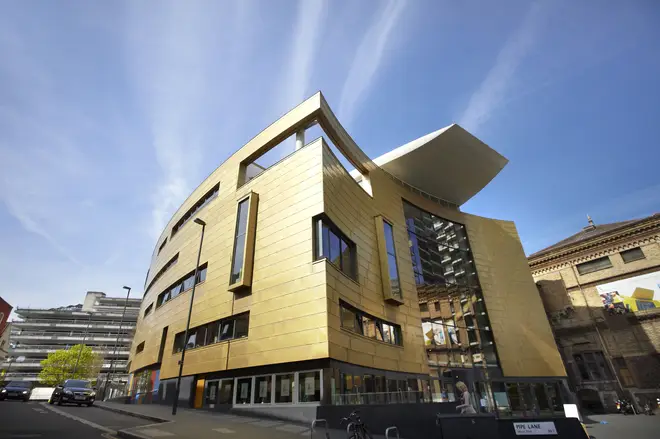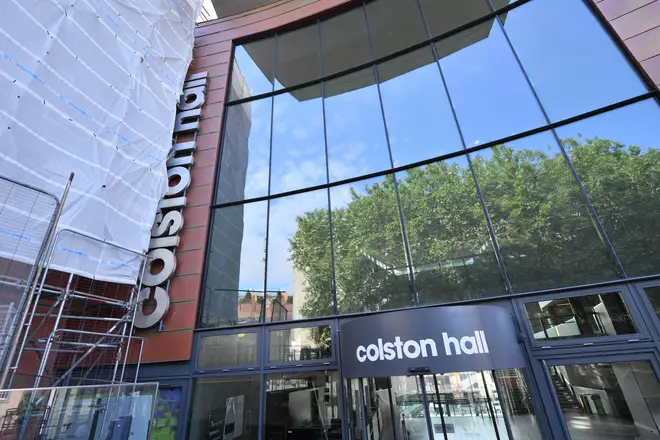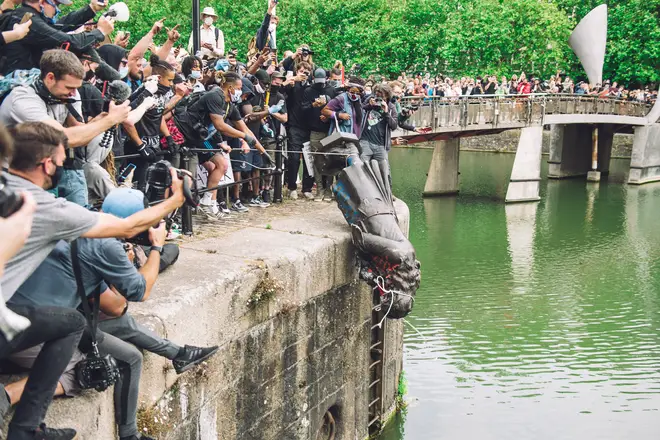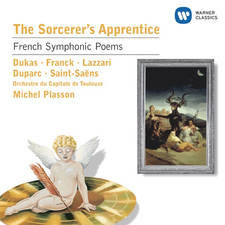This is what Bristol’s Colston Hall is called now
23 September 2020, 10:06 | Updated: 23 September 2020, 10:07

Bristol’s flagship concert venue no longer shares its name with a slave trader, in the wake of Black Lives Matter protests.
Bristol’s Colston Hall, previously named after a 17th-century slave trader, has changed its name to Bristol Beacon.
The landmark name change comes after Black Lives Matter protests in the city, which saw Edward Colston’s statue toppled and thrown into the harbour.
Bristol Music Trust, which runs the venue, said it hoped this would mark “a fresh start for the organisation and its place in the city”.
A spokesperson added: “We believe in the power of music to break down barriers and cross boundaries.
“Bristol Beacon will celebrate this in everything we do.”
The venue, which has hosted classical artists from Philip Glass to the Bournemouth Symphony Orchestra, is currently closed for multimillion-pound refurbishment.
Read more: Minnesota Orchestra breaks with Minneapolis Police following George Floyd death >

The statue of the wealthy 17th-century slave trader has been a source of controversy in Bristol for years.
In 2017, initial plans were announced to change the name by spring 2020 as Chief Exec Louise Mitchell described the Colston name as “a toxic brand”, but actions were delayed due to the coronavirus outbreak.
During Colston’s involvement in the Royal African Company (RAC) between 1680 and 1692, around 84,000 slaves were transported from west Africa to the Caribbean and the Americas.
Slaves were branded on the chest with company’s initials and herded onto ships, where they were shackled together. Around 10 to 20 percent were estimated to have died of disease, suicide and murder during the six to eight-week journey.
Read more: 9 black composers who changed the course of classical music history >

Human suffering made Colston rich, and almost 300 years since his death, the merchant’s inhumane actions have been acknowledged.
The trust previously confirmed the hall was built in 1867, 146 years after Colston died, and was not founded using his money.


































